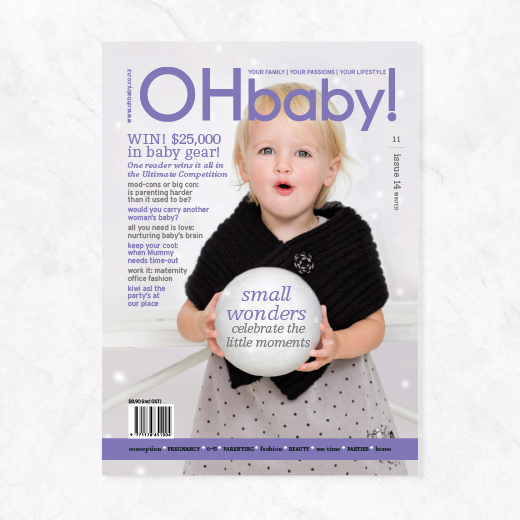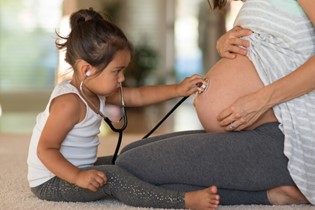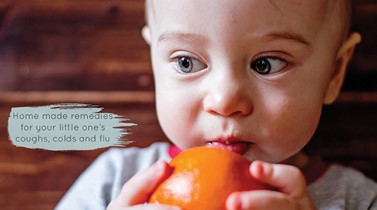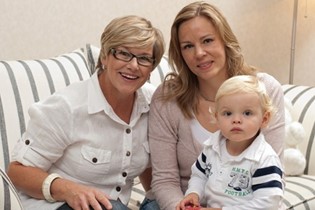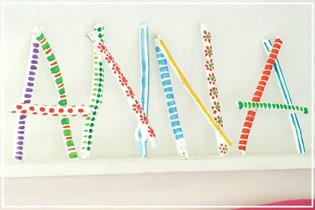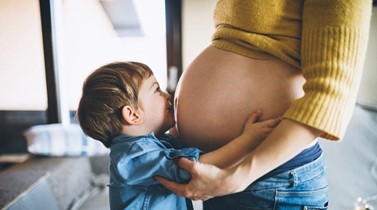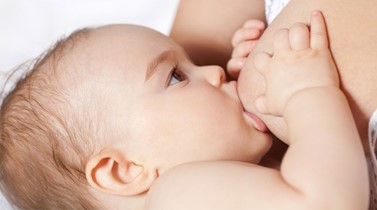Do you get mummy rage? You're not alone
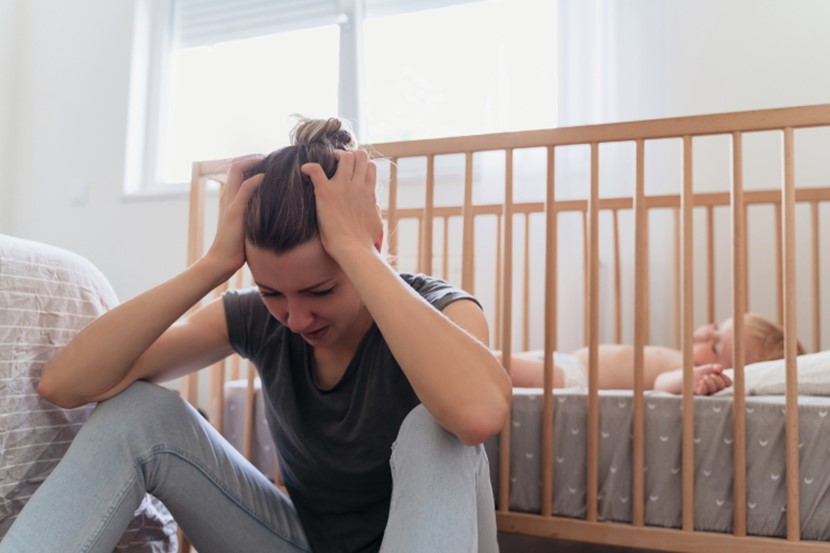
Every time you boil over in fury the kids are watching and picking up tips. Is it time to change the programme? Dr Melanie Woodfield explains.
Before I became a mum, I had plans to be the perfect parent - always cool, calm and collected. The little tykes could throw a monumental wobbly and relaxed Mum would gently shepherd them into the car, while murmuring reassurance. I thought years of caring for children with behavioural problems would stand me in good stead. Little did I know my children could (and would) press buttons I didn't know I had. Little did I know that caring for other people's children for eight hours was not the same as caring for my own 24 hours a day, seven days a week.
We often read about how to help children manage their anger, but what about when Mum and Dad are the ones who lose it? It's natural and normal to feel and express a range of emotions, including anger. It's only to be expected that our children will make us angry. Sometimes it's frustration with their slowness, messiness or disorganisation. Sometimes it's fury at the way they looked at us. Different things will set different people off.
Any takers for the following?
💢 An older child (apparently deliberately) hurting the new baby.
💢 A child biting/hitting/kicking/punching a sibling, or you.
💢 A toddler (apparently deliberately) wetting or soiling their pants, despite being toilet-trained.
💢 A toddler tipping food or mess in general onto clean floors.
These things, in and of themselves, won't necessarily trigger our anger. So what factors are likely to tip us from a state of irritation or frustration into full-blown anger? This will vary from parent to parent, but might include:
💢 Feeling very protective towards a new baby and/or younger child. All sorts of hormones float around during the early weeks and months and one of their jobs is to make us naturally protective of our young. When a threat presents itself (even in the form of a tiny toddler), we can become very grumpy, very fast.
💢 Speaking of hormones, we all know women are vulnerable to irritability (read: cranky) at "certain times of the month".
💢 Sleep deprivation can make us more inclined to impulsive anger.
💢 Isolation and lack of support doesn't help. This may affect single mums, or mums spending long hours alone caring for children.
Being angry, in and of itself, is not a problem. Telling your child "Mummy is angry because…" is likely to be helpful for your child. As they grow, children will begin to feel anger themselves, and giving them words to express their anger may help them to better manage it. Social psychologists call this modelling. Not Naomi Campbell modelling, but social modelling. The idea is that children are primed to imitate what important adults around them do - how they handle happiness, sadness and anger. The old saying, "Do what I say, not what I do" is a bit of a waste of breath - children are like little sponges, ready and waiting to do what you do - not what you say. Instead, try learning to express your own anger in a helpful way.
If you're struggling to think of how to do this, the following phrases might be of use. Try getting your head around them (even practising them out loud) before you get angry. That way, they're more likely to come naturally when you are angry.
Instead of "You little […]. Not again!", try: "I'm not angry at you, I'm angry that this has happened again. How can we make sure it doesn't happen again?"
Instead of "I'm so angry right now!" which doesn't give kids any information about why you're angry, try: "Mum is angry because her nice clean floor now has paint all over it. I worked really hard to clean it and now I'm angry and sad."
It can also be helpful to notice when kids seem angry (it's often hard not to notice!) and to comment on this, giving them words to express their feelings. For example, younger kids might like: "Is that an angry face you're wearing? What happened to change your face from a happy face to an angry face?" Older kids might respond well to something like, "I'm guessing that the frown on your face means you're angry. What happened? How can we work together to fix it?"
Anger = aggression?
Anger is only really a problem when it's never expressed (think bubbling resentment) or when it's expressed as aggression or violence towards ourselves or others. Aggression is a common by-product of anger, and it can land us in sticky situations before we know it. I'm sure you've noticed that young children in particular tend to display anger or frustration through physical acts (hitting, kicking, punching, throwing things). As we mature, and our brains develop, our ability to inhibit these physical urges usually improves, and we express our anger in different ways. Sometimes, however, circumstances mean that we can revert to our child-like ways of showing anger.
It's actually quite common to have occasional thoughts, in anger, about doing things that we would NEVER do while calm. We've all watched news stories of children who have been hurt or killed by their parents, and wondered how it could happen. No parent wakes up in the morning and plans to hurt their child. Even "bad" parents usually don't intend to be bad. But when stressed and sleep-deprived, little things can make us very angry, very fast. Add to that drug use or lots of alcohol, or a parent or caregiver who grew up in a violent home, and all of a sudden the reasons for child abuse become less mysterious.
Did you know?
It's worth getting on top of our inappropriate displays of anger, as studies are starting to show angry mums and dads can have long-lasting effects on their children. Researchers have known for a long time children growing up in homes where anger and violence feature often are more likely to have poorer emotional and psychological outcomes. But a recent study has also shown angry and stressed mums can increase physical health problems in their children. Last year, Jun Nagano and colleagues from the Institute of Health Science in Japan studied mums who were chronically irritable and angry and under lots of stress. Interestingly, these mums were more likely to have young children with more severe asthma. The children of serene mums were more likely to have less severe asthma. Interesting, huh?
How to stay cool
The Tākai website and brochures are full of practical, relevant information, check out www.takai.nz. The following tips are great for reducing stress:
💢 Think about how you react to certain situations. Are there some things that wind you up more than others? Talk about these with someone else and think of ways you can manage.Sometimes just accepting "I can't do anything about it, it's not my problem" is a relief
💢 Set realistic expectations. If you've got small children, trying to keep the house really tidy is impossible. Set aside a time at the end of the day when you put all the toys away together
💢 Exercise. Go for a walk three times a week, do 20 sit-ups every morning or dig the garden
💢 Set aside some time for yourself. Sit and read a book for 10 minutes, or watch TV. Don't spend all the time when your children are asleep or busy rushing around trying to do things - use that time for yourself.
These tips are great for lowering stress overall, and reducing the chance that you'll end up seriously angry at your child, your partner, or yourself. If you do find yourself really, really angry, particularly if you're angry at your child, you may need another strategy. It can be helpful (and often safer for everyone) to put yourself in time-out. Most importantly, make sure the kids are safe (put them in their cot, highchair, or in front of the TV) and leave the room, just for a few minutes. Sit on the deck or ring your partner or a friend, and allow yourself to get some perspective: this challenge WILL pass, things WILL get better, the kids WILL get older, and eventually, they WILL move out.
When to ask for help for yourself
If you find yourself very angry most of the time, it is a good idea to seek help from a professional. Not because you're bonkers, but because it's really, really tiring to be stressed, angry and frustrated all the time. It's a huge load for anyone to carry, and there are professionals out there who can help. Admitting that you've been angry, and even admitting that you've thought about hurting your child, is incredibly challenging. You might be afraid that your child will be taken off you, or that your partner or family will think less of you. Both of these things are highly unlikely. Be brave, seek help.
- If you're in Auckland, the Parent Trust runs programmes for parents who struggle to manage their anger. Go to www.parenttrust.org.nz
- The National Network of Stopping Violence Services is an excellent resource for finding programmes in your local area, see www.nnsvs.org.nz. If you want someone to talk to right now, ring Lifeline, 0800 543 354, or visit www.lifeline.org.nz
When to ask for help for others
To me this one is simple. If your instinct tells you a child is not safe, or a parent is stressed to the point where a child could get hurt, you have a moral responsibility to do something about it. We've seen too many cases where a child has died or been seriously hurt, and neighbours and friends have later said they'd always had their suspicions. First, try approaching the person you're worried about, and gently suggest they need support. If that doesn't help, or if you're seriously worried about a child's wellbeing, phone Child, Youth and Family (CYF) on 0508 FAMILY and talk about your concerns. You can ask to remain anonymous.
Dr Melanie Woodfield is a child and adolescent clinical psychologist in Auckland, and the mother of two young boys.

AS FEATURED IN ISSUE 14 OF OHbaby! MAGAZINE. CHECK OUT OTHER ARTICLES IN THIS ISSUE BELOW
